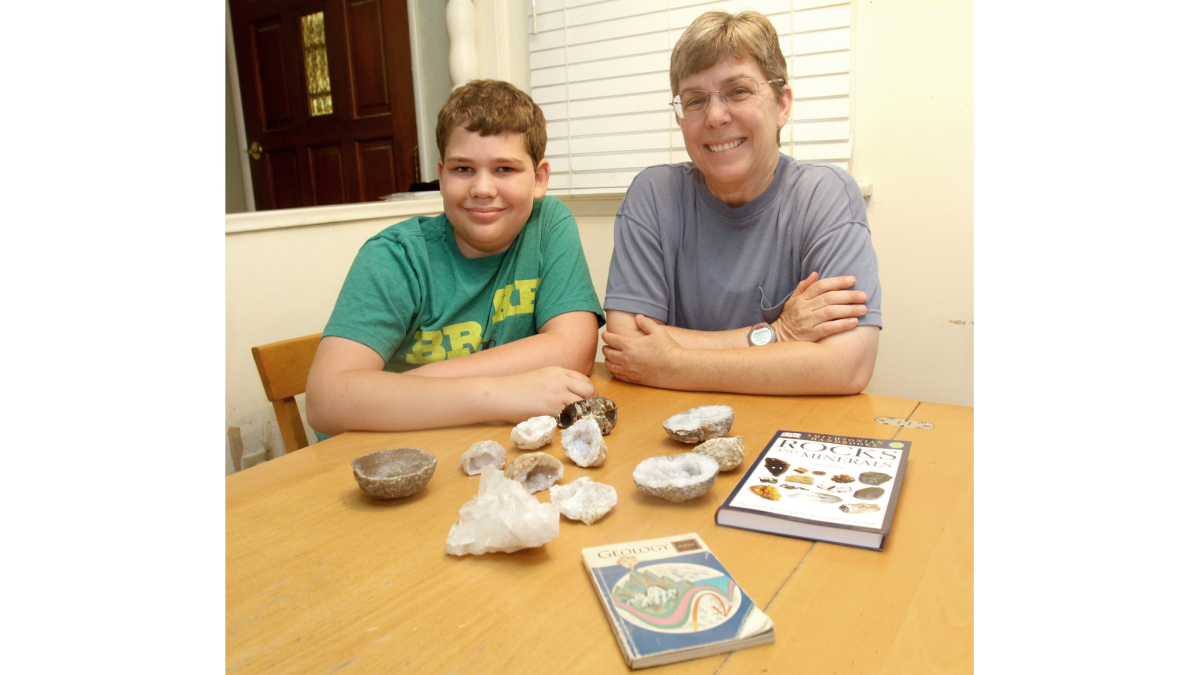Mom fights for son’s inclusion in the classroom

Kelly Duenckel had something important to tell her son, so she sat him down at the kitchen table in their Burbank home.
It was early March, and the science lab that students rave about at John Muir Middle School was coming up. Many of her son’s seventh-grade classmates would get to dissect a cow’s eye, but her son Robert would not get to participate.
As a student in the Special Day class at Muir, Robert has learning disabilities, including short-term memory deficiencies stemming from a seizure disorder. Duenckel was told by school officials that Special Day students, many of whom have disabilities that impair their ability to learn, would not get to dissect the cow’s eye.
Robert, who had been looking forward to the lab ever since he heard about it from his older brother, blinked back tears and asked his mom why he couldn’t participate.
“I didn’t have a good answer for him,” Duenckel recalled later.
She had been told there wasn’t a credentialed special education teacher on hand to lead the lab, that there wasn’t enough funding and that Special Day students hadn’t participated in the cow-eye dissection for at least the last four years, or for as long as Greg Miller has been the principal of Muir, and could confirm as much.
Duenckel did what she said any mother would do: she complained.
She took her concerns to Muir’s administrators, then to Burbank Unified’s superintendent and school board.
She ultimately logged a complaint with federal officials, and the U.S. Department of Education’s Office for Civil Rights opened an investigation into her allegations, including one that Robert was discriminated against by being denied an equal opportunity to participate in science labs because he was a student in a Special Day class.
The California Department of Education subsequently opened a compliance investigation early this month to determine if the district violated any special-education regulations, including an allegation that the district did not implement testing accommodations for Robert.
Meanwhile, Duenckel learned that Special Day students missed out on a few other labs that were held during the past school year, including a four-part microscope lab where general education students examined cells through microscopes and Special Day students looked at drawings of cells on a projector.
Her speaking up about the cow-eye dissection lab, however, ultimately led to Robert participating in the lab. But Duenckel refused to accept only her son’s involvement in the lab when she was offered it, and she foughtfor Robert’s classmates to be take part in the lab, as well.
Robert recalled recently while sitting at his kitchen table how he trimmed the fat off around the eye before puncturing it and watching liquid ooze onto a tray. When he picked up part of the eye with his gloves, it was too slippery to hold, and at the end of his examination, he cut the eye into several pieces with scissors.
More than once, a mom of a boy who participated in the lab with Robert thanked Duenckel for fighting for the Special Day students’ inclusion in the lab, Duenckel said. Later, the woman’s son told Duenckel the dissection was exciting and, at the same time, it was the “most disgusting thing” he had ever done, she recalled, when she gave him a ride home as part of a carpool arrangement.
By submitting a complaint for federal and state education officials to review, Duenckel said she hopes that Burbank Unified’s policies will change regarding Special Day students’ inclusion in science labs.
Overall, she said she feels Special Day students are viewed as “second-class students,” she said.
“The education that they receive should be just as valuable as the education that gen-ed students get. It should be the same or comparable,” she added.
Matt Hill, superintendent of Burbank Unified, said he could not respond to a request for comment, citing the pending investigation.
In an earlier response to Duenckel’s concern during an April school board meeting, Hill said, “We are providing in areas what’s required for special-ed, but that’s not good enough. When we have a tagline of ‘Excellence and Equity,’ and we have situations where we have students not getting what they deserve, it’s not something I’m going to tolerate.”
Despite Hill noting a need for improvement, his reference to the school district fulfilling what’s required ultimately pushed Duenckel to file a complaint with the U.S. Department of Education’s Office for Civil Rights.
“I thought, ‘You are not making the minimum,’” she said. “You need to have same or comparable labs, and no lab at all is not ‘same or comparable.’”
When federal and state education officials confirmed they would investigate her allegations, Duenckel said she felt her concerns were validated.
She said she hopes the investigation will lead to change.
“This could be really good for all the [Special Day class] kids,” she said.
ALSO
Crash course in credit recovery yields best-ever graduation rate of 75% for L.A. schools
UC Davis chancellor resigns following probe into ethical violations
Summer programs help prepare minority students for college STEM
